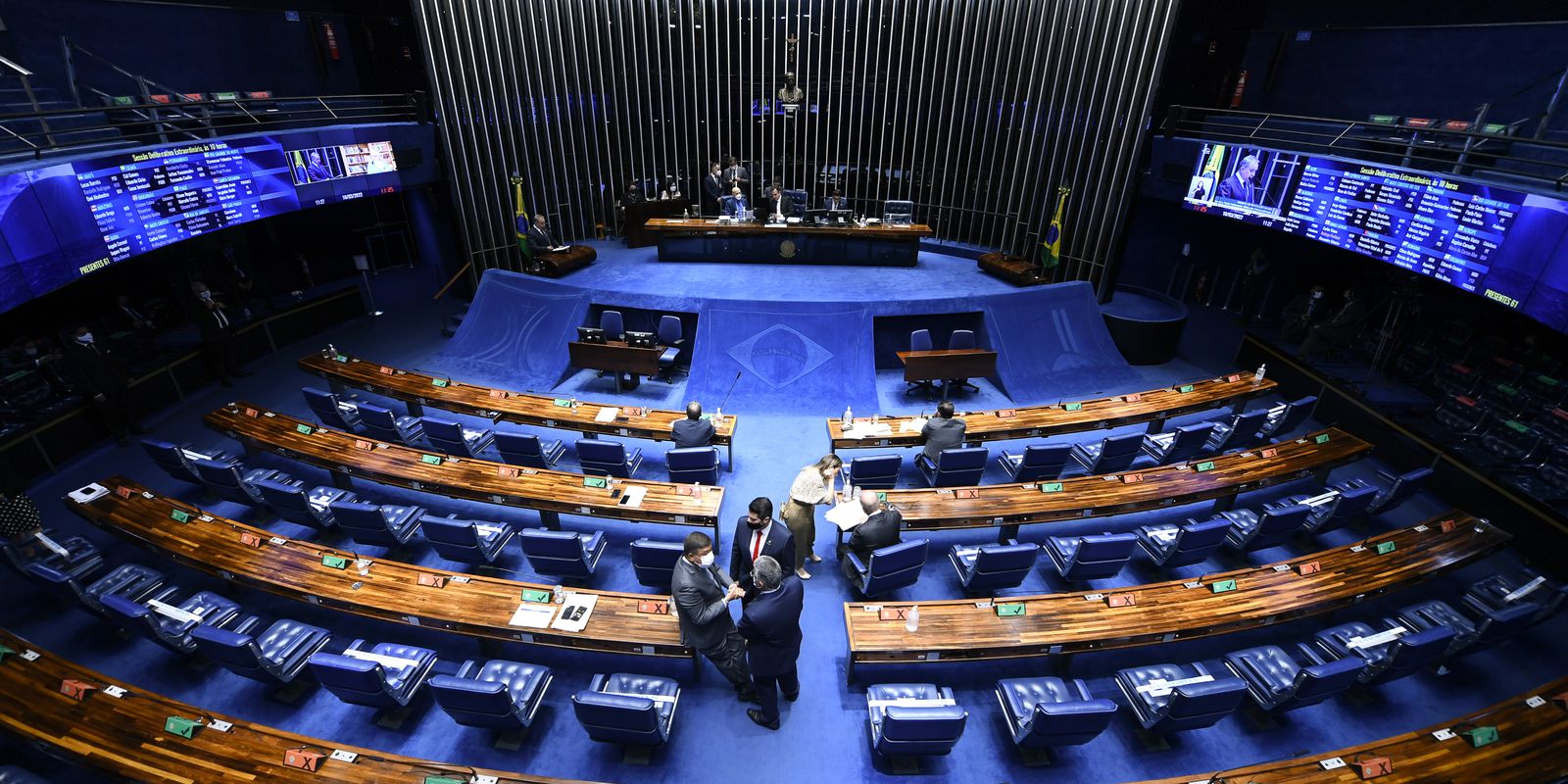The Senate approved tonight (7), in two shifts, the Proposed Amendment to the Constitution (PEC) called the Transition PEC. In the first round, the score was 64 votes to 16 and, in the second round, 64 votes to 13. The matter goes to the Chamber of Deputies. The proposal aims to guarantee resources for social programs in the 2023 Union Budget, such as the continuity of the payment of the Auxílio Brasil of R$ 600 and the real increase in the minimum wage from January. 
The PEC brings a kind of expansion of the spending ceiling, created in 2016 in the Michel Temer government. The proposal, in the interest of President-elect Lula, is to expand this ceiling by R$145 million to, with that money, enable the payment of the Auxílio Brasil, which will once again be called Bolsa Família in 2023. The spending ceiling was created to limit government expenses, reduce public spending and prevent that spending from being greater than the collection in the year.
The PEC forecast is to pay the amount of BRL 600 per month, plus BRL 150 per child up to 6 years old from January 2023. In addition, the PEC also provides for an “extra-ceiling” amount for payment of the aid, extra figures for expenses with socio-environmental programs and the fight against climate change. The text was aligned yesterday (6) at the Constitution and Justice Commission (CCJ), when it was approved and from where it went to the plenary of the House.
A point that was the subject of debates in the plenary was the duration of the expansion of expenditures. The future government wants two years, and so it was in the report by Senator Alexandre Silveira (PSD-MG). Other senators, linked to the current government or considered independent, asked for a shorter period of one year. The text continued with the two years proposed by the rapporteur.
In his opinion presented in plenary, Silveira included all Scientific, Technological and Innovation Institutions (ICTs), and not just the Oswaldo Cruz Foundation, as was in the report approved yesterday at the CCJ. The section of the proposal provides that expenses paid with own revenue, donations or agreements with federal educational institutions and ICTs are not included in the expenditure ceiling limit.
The report also provides for the extension of the deadline for municipalities to continue using, next year, the resources already received from the National Health Fund and the National Social Assistance Fund directly to health funds to combat the covid-19 pandemic.
As established in the CCJ, the PEC provides that the President of the Republic must submit to the National Congress, by August 31, 2023, a new proposal for a fiscal regime, called “fiscal anchor”, which, in practice, will replace the ceiling of expenses and, according to the PEC, would guarantee the economic stability of the country.
Matter updated at 23:24 to add information.








